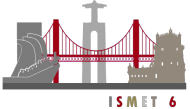News
Young Biophysicist Talk Award to Tomás M. Fernandes
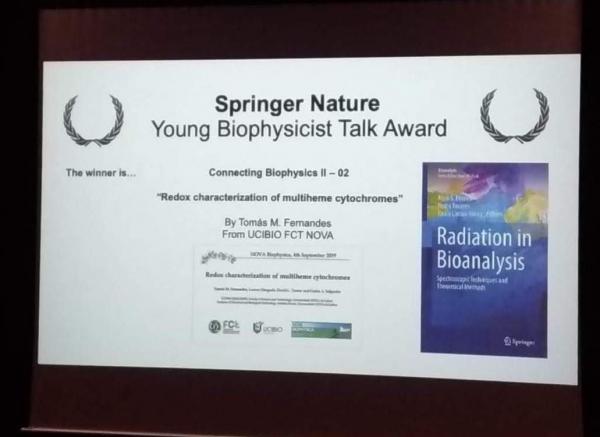
Tomás M. Fernandes received the Young Biophysicist Award for his talk "Redox characterization of multiheme cytochromes" at NOVA Biophysica conference held in Lisbon in September 2019.
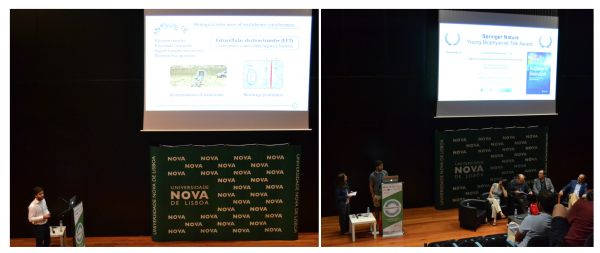

Ciência Viva no Laboratório 2019
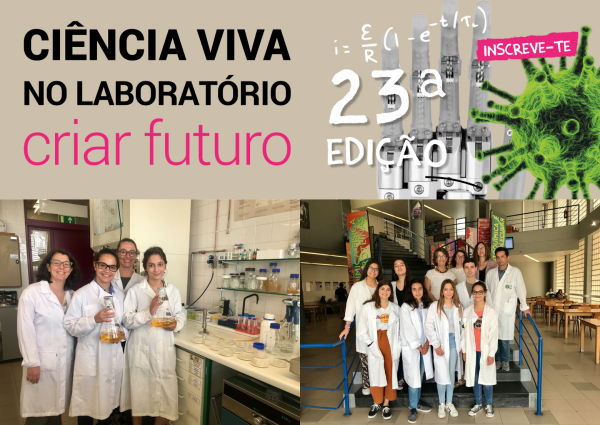
Our lab participated in "Ciência Viva no Laboratório 2019" and hosted two high school students for a week.

Prémio António Xavier 2018 para Joana Dantas
António Xavier Prize 2018 awarded to Joana Dantas
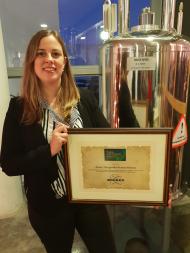
Joana Dantas has been awarded the Prémio António Xavier 2018, for the best PhD Thesis conducted in Portugal in 2017, in the area of Nuclear Magnetic Resonance (NMR), Electronic Paramagnetic Resonance (EPR) or Magnetic Resonance Imaging (MRI).
Joana Dantas’s PhD thesis, entitled “Characterization of extracellular electron transfer networks in Geobacter sulfurreducens, a key bacterium for bioremediation and bioenergy applications”, was developed under the supervision of Carlos Salgueiro, leader of the Biochemistry & Bioenergetics of Heme Proteins Lab and Associate Professor at the Chemistry Department - FCT NOVA.

Parabéns à Joana Dantas pela conclusão do doutoramento em Biotecnologia!
Congratulations to Joana Dantas for finishing her PhD in Biotechnology!
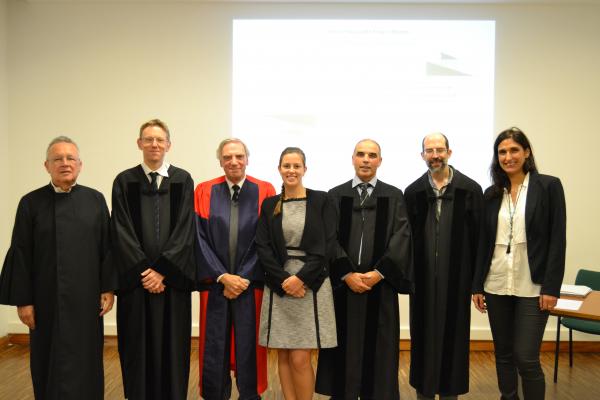

ISMET6
We co-organized the ISMET 6 - General Meeting of the International Society for Microbial Electrochemistry and Tecnology in October 2017 in Lisbon!

A study published last monday at Scientific Reports: Nature Publishing Group concludes that office paper can be used as a sensor for electrochemically active bacteria detection.
Electrochemically active bacteria have the ability to transfer electrons to cell exterior towards insoluble electron acceptors. “This feature has been currently explored in the development of sustainable technologies in bioremediation field, specifically to remove polluting compounds from the environment, and in the bioenergy field, specifically for production of electrical current from the bacterial metabolism in microbial fuel cells”, explains Carlos Salgueiro, head of the Biochemistry and Bioenergetics of Heme Proteins Research Group at UCIBIO@requimte, specialized on the characterization of extracellular transfer processes on these bacteria. However, the number of isolated and characterized electrochemically active bacteria species is still very limited regarding their abundance in nature. “The detection methods currently available are slow, expensive and complex”, explains Elvira Fortunato, director of I3N, therefore “it is critical to develop a rapid, inexpensive and simple detection method is critical for the optimization of the applications mentioned above”. Elvira Fortunato, co-inventor of the paper electronics concept worldwide, says that “main goal of this work was the development of a paper-based colorimetric sensor that uses an electrochromic material, tungsten trioxide, as the active layer for the detection of electrochemically active bacteria”.
The design of the sensor was defined by printing and diffusing a wax layer that generated the solution wells delimited by hydrophobic barriers onto the paper (lab-on-paper technology). The tungsten trioxide nanoparticles, synthesized through a microwave assisted hydrothermal method, were deposited in the wells by drop casting. The nanoparticles with hexagonal crystallographic structure were able to successfully detect an electrochemically active bacteria, Geobacter sulfurreducens, from an early growth stage to a late-exponential growth stage. The authors of the article describe for the first time the development of a paper-based sensor and colorimetric detection method that revealed sensibility and specificity for detection of these bacteria, in a rapid, simple and inexpensive way. Ana Carolina Marques, the first author of the article, obtained her Master degree on Biochemistry at FCT, last December.
The research work results from a collaboration between the research team led by Elvira Fortunato at I3N and the research team led by Carlos Salgueiro at UCIBIO@requimte. Both research units classified were classified with Exceptional in the recent research unit evaluation (2014) delivered by the European Science Foundation and by the Portuguese Foundation for Science and Technology.
Público
Observador
Exame Informática
RTP Notícias Online
TVI24 Online
SIC Notícias Online

Prémio Poster para Joana Dantas
Poster award to Joana Dantas
Foi atribuído a Joana Dantas um Prémio pelo Poster apresentado durante a VII Biennial Meeting of the Nuclear Magnetic Resonance Group of the Spanish Royal Society of Chemistry / IV Iberian NMR Meeting / VI Ibero-American NMR Meeting com o título 'NMR interactions studies shed light on the extracellular electron transfer pathways of Geobacter sulfurreducens''.
Joana Dantas received an award for her Poster presentation at the VII Biennial Meeting of the Nuclear Magnetic Resonance Group of the Spanish Royal Society of Chemistry / IV Iberian NMR Meeting / VI Ibero-American NMR Meeting entitled 'NMR interactions studies shed light on the extracellular electron transfer pathways of Geobacter sulfurreducens''.


Prémio L'Oréal 2012
L'Oréal Prize 2012
Leonor Morgado pretende compreender e optimizar a transferência extracelular de electrões na bactéria Geobacter sulfurreducens e assim contribuir para uma implementação mais eficiente de tecnologias que permitam gerar energia limpa e ao mesmo tempo remover compostos tóxicos do ambiente.
Leonor Morgado aims to understand and optimize the extracellular electron transfer in Geobacter sulfurreducens bacterium and thus contribute to a more efficient implementation of technologies which make it possible to generate clean energy and at the same time remove toxic compounds from the environment.
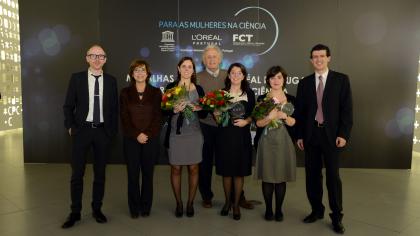
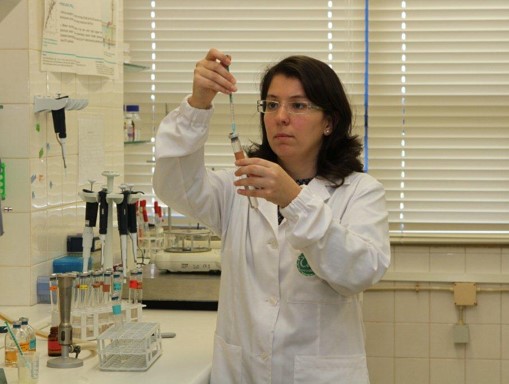
A investigadora prossegue o seu projecto no REQUIMTE/CQFB, Departamento de Química, Faculdade de Ciências e Tecnologia da Universidade Nova de Lisboa.
The researcher pursues her project in REQUIMTE/CQFB, Chemistry Department, Faculdade de Ciências e Tecnologia da Universidade Nova de Lisboa.

